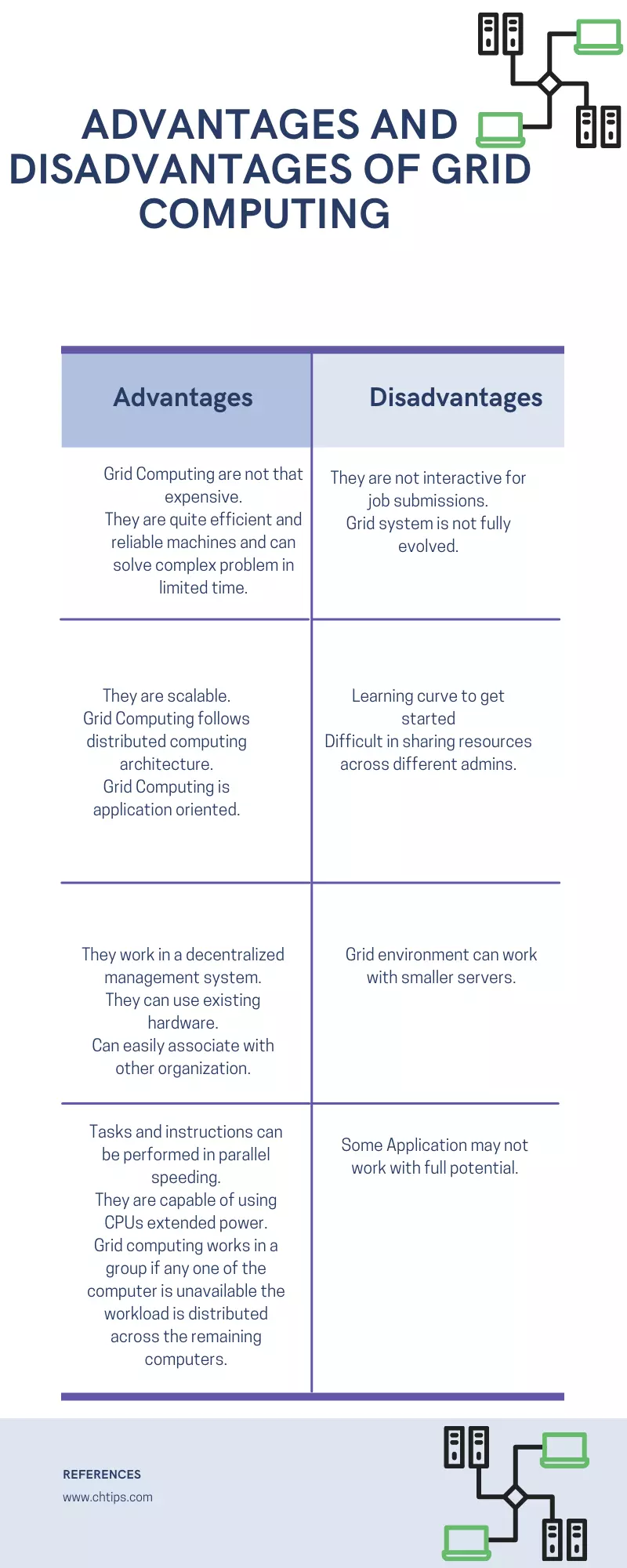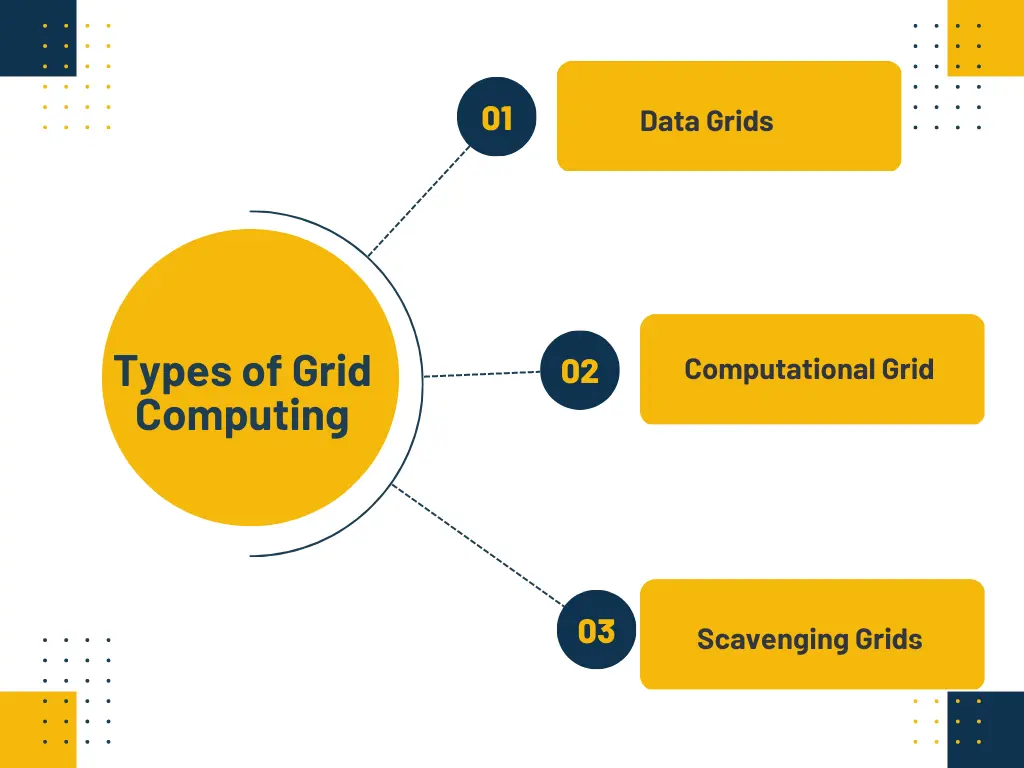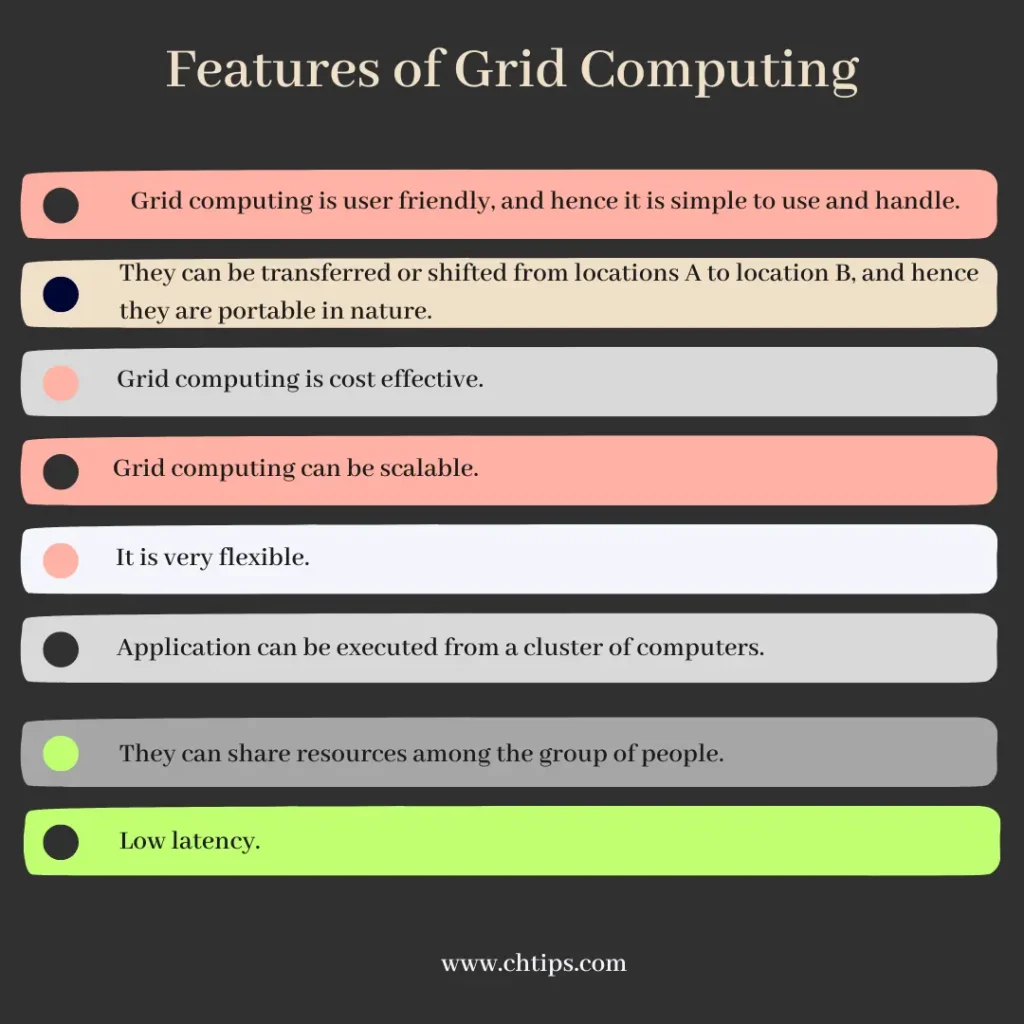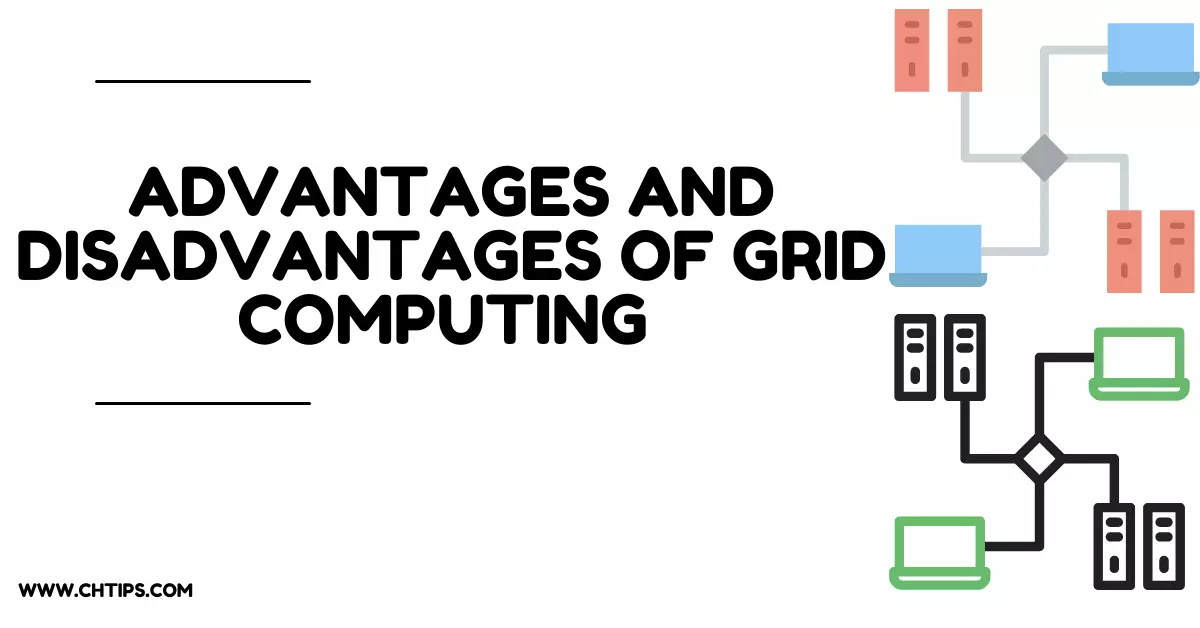In today’s article, we are going to discuss what are the advantages and disadvantages of grid computing architecture also drawbacks and benefits of grid computing with examples, types, meaning and definition.
The Grid Computing was developed in the year 1990.
When a group of computers in the computer network performs tasks and operations on large scale, like data analysis and inspection is called Grid Computing.
Using grid computing we can save time as well as hard-earned money.
Let us dig into the topic more briefly.
What is Grid Computing with Examples?
Grid computing is a computer network where every computer resource is shared with another computer in the network.
It is also a group of computers in the network.
These computers handle huge jobs and tasks in hand where data is analyzed in large quantity for speedy and better performance.
The grid computing is also called “distributed computing”.
In this method, the workload is distributed across other computers in the network so that resources are used to derive a common goal in the best possible manner.
Advantages and Disadvantages of Grid Computing

Advantages of Grid Computing
Let us discuss some advantages of grid computing in computer architecture in points.
- They are not that expensive.
- They are quite efficient and reliable machines and can solve complex problems in a limited time.
- They are scalable.
- Grid Computing follows distributed computing architecture.
- Grid Computing is application-oriented.
- They work in a decentralized management system.
- They can use existing hardware.
- Can easily associate with other organizations.
- Tasks and instructions can be performed in parallel speeding.
- They are capable of using CPUs extended power.
- Grid computing works in a group if any one of the computers is unavailable the workload is distributed across the remaining computers.
- Grid computing can be upgraded on the fly without scheduling downtime.
- Software is considered the brain behind grid computing. Policies can be managed by the grid software.
- Grid computing environments are very modular in performance.
- Doesn’t need a six-figure SMP server for applications.
Disadvantages of Grid Computing
Let us discuss some disadvantages of grid computing in computer architecture in points.
- They are not interactive for job submissions.
- The grid system is not fully evolved.
- The learning curve to get started
- Difficult in sharing resources across different admins.
- Grid environment can work with smaller servers.
- Some Applications may not work to their full potential.
People Are Also Reading
- Advantages and Disadvantages of Microcontroller
- Advantages and Disadvantages of Magnetic Disk
- Advantages and Disadvantages of Optical Disk
- Advantages and Disadvantages of Microprocessor
- 20 Advantages and Disadvantages of Mobile Phones
- Advantages and Disadvantages of CRT Monitors
- Advantages and Disadvantages of CCTV Cameras
- Advantages and Disadvantages of Blu-Ray Disk
- Advantages and Disadvantages of Fifth Generations of Computer System
- Advantages and Disadvantages of Bluetooth
- Advantages and Disadvantages of SATA
- Differences Between LCD and OLED Screens
- Advantages and Disadvantages of Speakers
- Advantages and Disadvantages of IGBT
- Advantages and Disadvantages of ATM
- Advantages and Disadvantages of Satellite Communications
- 5 Components of Data Communications Network
- Merits and Drawbacks of EDI {Electronic Data Interchange}
- 11 Similarities Between Hardware and Software
- Computer Basic Tutorials
Types of Grid Computing

1. Computational Grid
These grids are basically used in the distribution of resources for better computing power.
2. Scavenging Grids
These grids are used in idle servers so that desktop computer resources are made strong to complete tasks and jobs.
3. Data Grids
These grids are used in organizations where it assigns an interface that helps in data checking and security.
Applications of Grid Computing
- Super Distributed Computing
- Systems Distributed In Real Time
- Specific Services
- The Intensive Process Of Data
- Virtual Collaboration Environments
8 Features of Grid Computing
There are several significant features and characteristics of grid computing they are as follows.
| 1 | Grid computing is user-friendly, and hence it is simple to use and handle. |
| 2 | They can be transferred or shifted from location A to location B, and hence they are portable in nature. |
| 3 | Grid computing is cost-effective. |
| 4 | Grid computing can be scalable. |
| 5 | It is very flexible. |
| 6 | An application can be executed from a cluster of computers. |
| 7 | They can share resources among a group of people. |
| 8 | Low latency. |

Grid Computing vs Cloud Computing
| # | Grid Computing | Cloud Computing |
| 1 | Grid Computing uses standard hardware. | Cloud Computing uses and utilizes virtualized systems. |
| 2 | Grid computing is sharing of processing power across multiple computers within a network or even across geographical locations. | Cloud computing is an internet-based model where all data & information are stored remotely on servers owned by third parties such as Amazon Web Services (AWS). |
| 3 | Grid Computing accesses computer power and storage resources differently from cloud computing. | Cloud computing uses and accesses resources differently from grid computing. |
Top Grid Computing Companies
| 1 | Xage |
| 2 | AutoGrid Systems |
| 3 | Darktrace |
| 4 | Hazelcast |
| 5 | Atos |
Frequently Asked Questions [FAQs]
Who is the father of grid computing?
Ian Foster is considered the father of grid computing,
What are the two main types of grids?
Symmetric or Asymmetric.
How many layers are there in grid computing?
There are 4 layers in grid computing
What is another term for grid computing?
Grid Computing is also referred to as “Parallel Computing”.
Get In Touch
I have also written and compiled some articles on computers and telecommunications, and please go through them.
I hope you will like reading it.
I hope that all the questions and queries related to what are grid computing , advantages and disadvantages of grid computing | drawbacks and benefits of grid computing is have been answered here.
If you have any questions related to Pros and Cons of Grid Computing.
Don’t hesitate to get in touch with me, and if you need to add, remove or update anything from the article, please let me know in the comment section or via email.
I will be more than happy to update the article. I am always ready to correct myself.
Please share this article with your friends and colleagues; this motivates me to write more related topics.
!!! Thank You !!!
